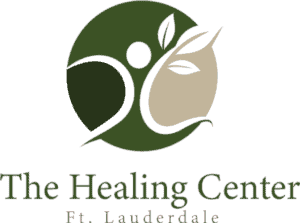Completing an addiction rehab program is a major first step in the recovery process, but addiction is a life-long disease which requires proper treatment in order to remain clean. Understanding what to expect after addiction rehab will help you prepare for your new life without drugs and alcohol.
Making the assumption that treatment can fix all of your problems completely disregards the severity of an addiction or alcoholism diagnosis. It can take quite a long time for your life to return back to what it was before alcohol and/or drugs impacted it. Your friends and family will also need time to adjust to your new lifestyle. You will need to implement new healthy habits and build positive relationships, so that you don’t fall back into old ways. Thankfully, there are a multitude of programs and people who can provide you help.
Aftercare Planning
An aftercare plan is a plan of action that you and your therapist will put together while you are still in treatment. The plan outlines the steps that you should take following your discharge in order to maintain your recovery. It is important to follow your aftercare plan in order to lower the risk of relapse. Here are some examples of what may be included in an aftercare plan:
- AA/NA meeting attendance schedule
- Intensive outpatient or outpatient program referral
- Psychiatrist referral (if needed)
- A list of individualized triggers to be aware of
- Resources if a relapse happens
- Therapist referral
- A relapse prevention plan
An aftercare plan is one of the many tools you can use for life after addiction rehab. It will include a clear cut plan and resources that will help you maintain your recovery. It also includes exact directions on what to do in case of relapse in order to prevent your addiction from progressing.
How To Maintain Your Recovery After Addiction Rehab
Once someone completes detox, residential treatment, and partial hospitalization, they will return to normal life. This includes their family, job, and daily living responsibilities. Going back into your usual routine can often trigger cravings to abuse alcohol or drugs.
Most scientific research indicates that relapse is most likely to occur within the first six months after addiction rehab completions. Awareness and understanding of your personal triggers can help you to handle or avoid them better.
Another important aspect of maintaining your recovery is developing healthy relationships with individuals who are also in recovery from drug and alcohol addiction. These new friendships can help you have more fun sober and offer you advice and guidance as you navigate early recovery. It is also important to develop healthy habits and be a part of support groups of some kind in order to stay busy and keep your mind off drugs and alcohol.
Individual Therapy
Attending individual therapy can help continue the work you started in treatment. Therapeutic models, like cognitive behavioral therapy, helps you to understand and process triggers and the underlying causes for your addiction. A therapist will also help you to develop healthy coping skills such as boundary setting, grounding techniques, and communication skills.
Continued Medical Care
After addiction treatment it is important to maintain your check ups and medical care that began while you were in detox and/or inpatient treatment. If you are choosing to be a part of a MAT program or if you are on psychiatric medications, then you should be seeing a psychiatrist on a regular basis. It is also important to attend your yearly physical exams in order to make sure you are taking care of your body properly in your newfound sobriety.
Support Groups
Often we think of AA and NA as the only support groups that are available after addiction treatment, but there are a multitude of other options as well. While AA and NA are highly suggested they may not be the right fit for everyone. No matter the type of support group that you choose to attend it is pivotal to be consistent. Building a support network is vital in order to maintain your recovery.
Addiction Treatment In Fort Lauderdale, FL
Here at The Healing Center we make sure that our clients are provided the best resources possible so that they can thrive after addiction treatment. We create an individualized aftercare plan that includes therapeutic and medical referrals, support groups, alumni meetings, and relapse prevention planning. We also make sure that if our clients happen to relapse, then they are welcome to reach back out to us and we will help them get back on their feet. We also offer intensive outpatient and outpatient programs which can keep structure, accountability, and therapy to individuals once they have completed inpatient treatment. If you are struggling with addiction and would like to begin your recovery journey, then reach out to our admissions team today.






